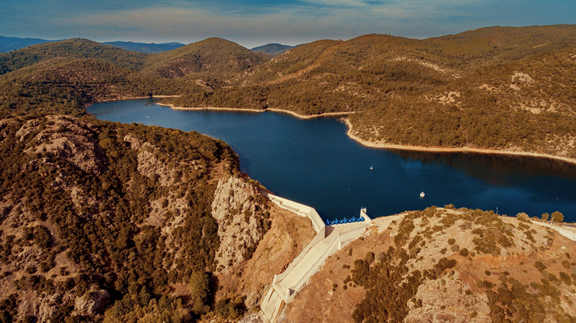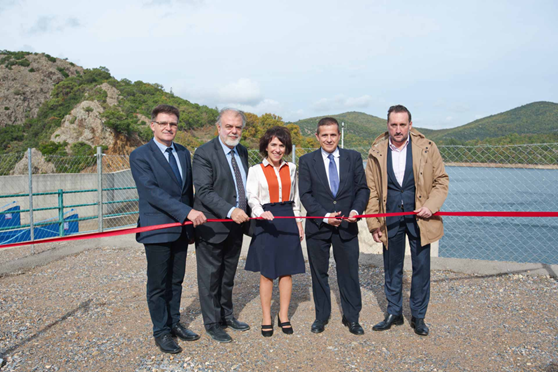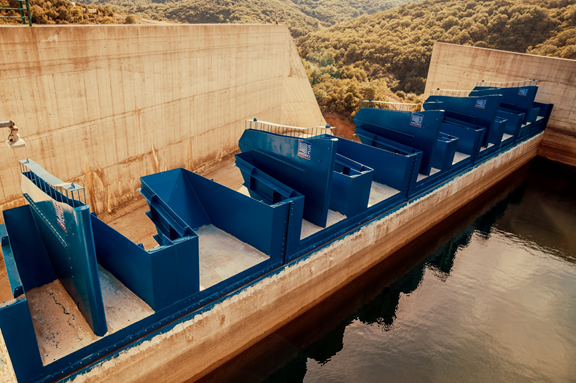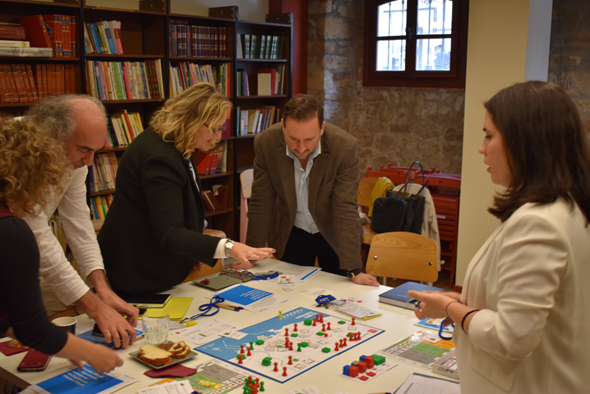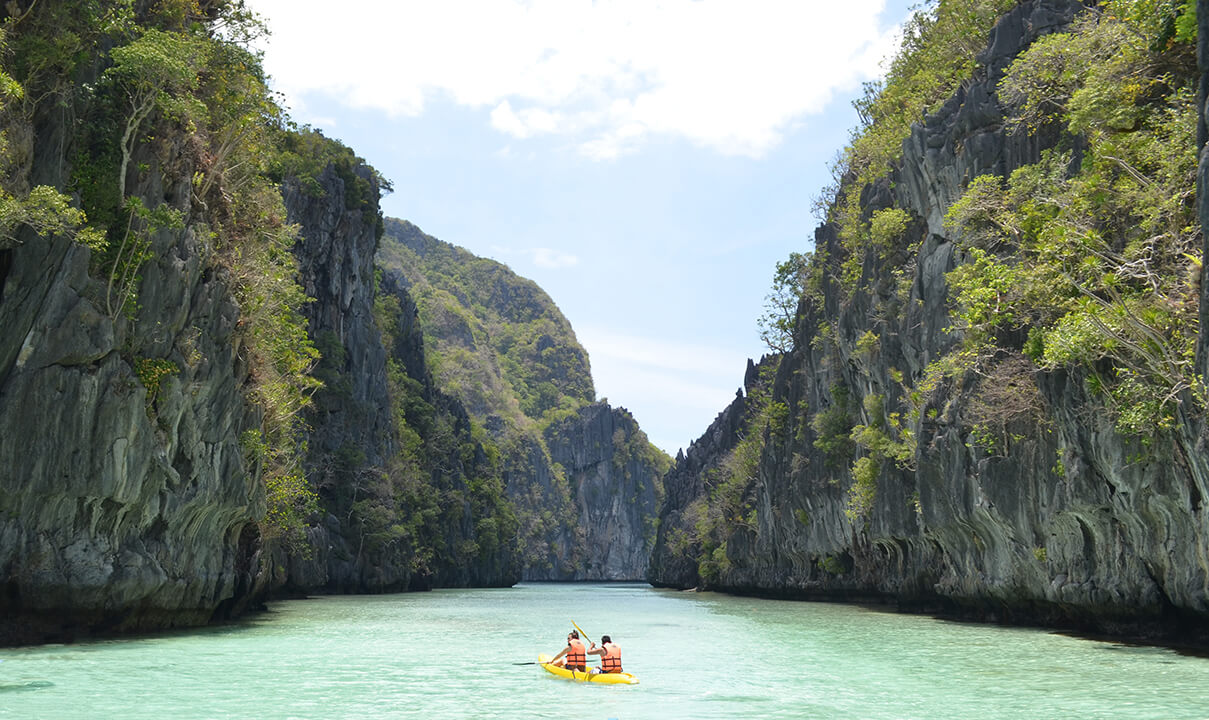


GWP Mediterranean increases urban water availability by 1 year through a holistic intervention
Problems of urban water scarcity have recently received worldwide attention, as water resources in cities like Cape Town in South Africa, and more recently Chennai, India, came close to “Day Zero”. Although not as water-stressed as these cities, Mediterranean coastal towns face critical water challenges, especially with recent studies suggesting that the region is warming 20% faster than the global average, and scarcity in freshwater resources projected to be among the largest in the world.
Faced with such challenges, local authorities in Alexandroupoli, a coastal town in the North of Greece, reached out to GWP-Mediterranean to elaborate on solutions to contribute towards its water security. Of particular concern were the impacts of climate change, with intense rainfalls and prolonged periods of drought, as well as the high risk of salinisation of the coastal aquifers due to intense groundwater pumping, leading also to high energy costs.
GWP-Mediterranean designed the “Water for the City” programme to provide responses by increasing freshwater availability. In partnership with the Alexandroupolis Water Utility and the Municipality, and with the financial support of a $1.2 million grant by The Coca-Cola Foundation, GWP Mediterranean followed a holistic Water-Energy-Food-Ecosystems Nexus approach. It coupled innovative technical solutions to increase the local water budget and enhanced capacities to manage urban water resources in an integrated manner while building a new water culture, aiming not only to provide solutions for Alexandroupolis, but also to become a paradigm to be replicated in other coastal cities in the Mediterranean and beyond.
INNOVATIVE TECHNICAL SOLUTIONS FOR MORE WATER
A central pillar of the “Water for the City” programme was a technical intervention to increase the availability of water and enable the expansion of the water distribution network in peri-urban areas, where population is growing. The solution centred on optimising the existing water supply dam infrastructure, increasing its capacity to retain water, without increasing its environmental footprint. Following extensive studies on environmental footprint, hydrological data and modelling of the catchment area, custom-made free-standing gates (flood gates) were installed on the dam’s spillway. With the gates installed, the reservoir can now rise further, increasing storage capacity of additional rainwater by 1.7 billion litres, raising the dam’s capacity by 14%, increasing water supply for 85,000 residents and water users of the wider area.
The gates are installed on the sill of the spillway, forming a watertight barrier. Most of the medium to large floods are discharged over the gates in a controlled manner. In the case of intense flooding, pressure starts to build up under the gates and eventually causes the gates to tip off the spillway, protecting the dam infrastructure
The technique implemented provides safety in the case of severe floods. The patented flood gate system installed is designed to work without power supply or human intervention. In the event of extreme rainfall causing serious overflowing, one-by-one the flood gates automatically tip over, preventing damage to the dam’s infrastructure.
Inauguration ceremony of the dam optimization intervention at Dipotamos dam. From left to right: Dimitris Petrovic (Vice-governor of Evros region), Prof. Michael Scoullos (Chair GWP-Mediterranean), Ms Lillian Nektariou (Coca-Cola Country Manager for Greece, Cyprus & Malta), Konstantinos Aravosis (Secretary General for Natural Environment and Water), Ioannis Zamboukis (Mayor of Alexandroupolis).
While securing that more water will be available for distribution in the town’s network, efforts to improve urban water management continue with a second technical intervention which monitors water quality and quantity in remote areas of the network. While safeguarding access to safe water, the remote sensing system will provide real-time information also on leakages, allowing a timely response to fix these and minimise losses. This pilot application, according to the latest trends of smart water management systems for utilities, will provide feedback to the Alexandroupolis Water Utility on their losses and allow the expansion of smart monitoring to the whole network.
REINFORCING WATER MANAGEMENT
While the technical intervention increasing the water capacity of the dam was underway, the “Water for the City” programme undertook activities to ensure that, rather than provide an excuse for less vigilance, the newly increased water resources would be used more sustainably.
Taking into account the key role of water management agencies, GWP-Mediterranean developed a ‘serious game’, engaging key stakeholders and water managers in a real-world scenario, tailor-made for water-stressed Mediterranean coastal towns. With urban planning often being disconnected from urban water management, the “Water for the City” serious game on Integrated Urban Water Management, provides a unique opportunity for decision makers and stakeholders to meet, debate and jointly address the big picture. Challenges factored in the game include the future impacts of climate change, while solutions include the integration of green-blue infrastructure and nature-based solutions in the city, highlighting their potential in dealing with the town’s total water challenge.
REACHING OUT TO FUTURE WATER USERS AND MANAGERS
To ensure that the increased water supply would be valued by future every-day water managers, bespoke educational material was created, developed by the Mediterranean Information Office for Environment, Culture and Sustainable Development in collaboration with the Directorate of Primary and Secondary Education in Evros Region, approved by the Ministry of Education, including an interactive website tailored on the water situation of a coastal town, including daily challenges, and the role of citizens to wisely use water and utilise non-conventional water resources at the household level, such as harvesting rainwater for watering their green areas.
More than 6.000 students and teachers were trained in local schools, through hands-on interventions and seminars. The programme proved so successful that it was eventually adopted and supported by the local authorities and is currently implemented at the town’s Natural History Museum.
Overall, the “Water for the City” interventions have secured an extra year of water availability for Alexandroupoli, while providing a valuable boost and legacy for more effective water management. With large challenges facing the Mediterranean region, multi-stakeholder partnerships such as this coalition between local authorities, GWP-Med and Coca-Cola, can be key to achieving results on a large scale and with lasting impact.
